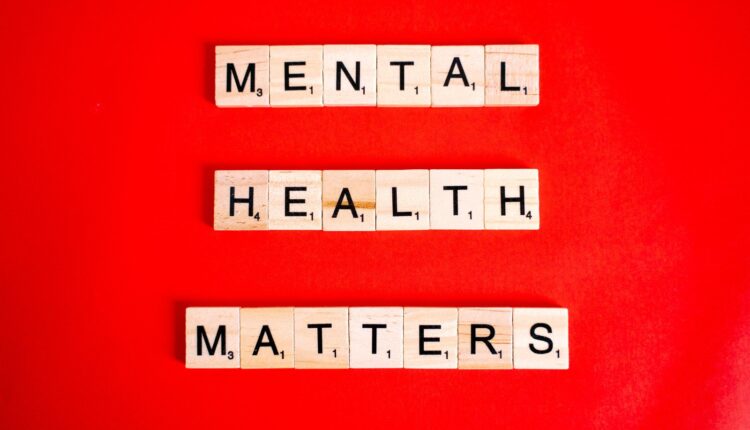The Importance of Mental Health in Overall Wellness
Welcome to our latest blog post! Today, we’re diving into a topic that’s often overlooked but incredibly important: mental health. Did you know that taking care of your mind is just as crucial as nourishing your body? In fact, the two are intertwined and directly impact each other. From reducing stress levels to improving relationships and productivity, prioritizing your mental well-being can have a profound impact on all aspects of your life. So grab a cup of tea, sit back, and let’s explore why mental health should be at the top of everyone’s wellness checklist.
What is Mental Health?
Mental health is an important factor in overall wellness. It can be used to describe the state of mind or emotional well-being of an individual. Mental health can be affected by a variety of factors, such as stress, anxiety, and depression. Mental health is important because it affects how people behave and think.
There are many types of mental health problems. Some mental health problems are minor and can be treated with medication or therapy. Other mental health problems are more serious and require professional help. Mental health problems can also lead to other medical conditions, such as depression leading to heart disease or bipolar disorder leading to suicide.
Mental health is important for everyone, no matter what age they are. Everyone deserves access to quality mental healthcare that addresses their specific needs. For example, children may need services that focus on building self-esteem and managing distress. Older adults may need services that help them cope with changes in life, like retirement or a death in the family.
Types of Mental Health Issues
There are a variety of mental health issues that can impact overall wellness. Some common problems include anxiety, depression, post-traumatic stress disorder (PTSD), and bipolar disorder. It’s important to get help if you’re struggling with any of these conditions, as they can significantly affect your quality of life.
There are many different types of treatment available for mental health issues. If you’re feeling particularly down or anxious, you may find relief from self-care measures like exercise and relaxation techniques. If medication is required, there are a variety of options available, including SSRI antidepressants and antipsychotics. In either case, it’s important to work with a healthcare provider who will help tailor a treatment plan specifically for you.
Mental health issues should not be taken lightly – they can have a significant impact on your overall wellbeing. If you’re experiencing any problems, don’t hesitate to reach out for help.
The Relationship Between Mental Health and Physical Health
Mental health is essential to overall wellness. Mental health can be described as the state of mind, emotions, and behaviors that a person experiences. Mental health issues can affect physical health in a number of ways. For example, mental health problems can lead to increased rates of physical illness and injury. They also can increase the risk of developing chronic conditions, such as heart disease or diabetes.
There are many different types of mental health problems, but all share some common features. Some mental health problems are characterized by intense feelings of sadness, anger, fear, or anxiety. Others are characterized by problems with mood regulation (i.e., staying calm and relaxed under stress). Still others are characterized by addictive behaviors (like using drugs or alcohol) or compulsive thoughts (like worrying excessively about personal safety or the safety of others).
Mental health problems often have a significant impact on a person’s life. They can interfere with daily activities and interactions, cause stress and anxiety at work or school, and impact relationships with loved ones. In some cases, mental health problems can be so severe that they require treatment in order to improve the individual’s quality of life.
There is no one-size-fits-all approach to treating mental health problems. However, interventions that focus on addressing symptoms (rather than causes) are usually most successful. Treatment strategies may include medication therapy (e.g., antidepressants), psychotherapy (i.e., talk therapy), self-help groups,
How to Improve Mental Health
Mental health is an important factor in overall wellness. According to the National Institute of Mental Health, “mental health refers to a state of mind or an emotional condition. It can be defined as a feeling of well-being or satisfaction with life, or as a state of distress and impairment in functioning.” In other words, mental health is about feeling good mentally and emotionally.
There are many factors that can contribute to someone’s mental health, including genetics, environment, and lifestyle choices. However, there are also things you can do to improve your mental health overall. Here are five ways to improve your mental health:
1) Get enough exercise: Exercise has been shown to have positive effects on both physical and mental health. It has been linked with decreased rates of depression and anxiety, improved sleep quality, increased self-esteem, and stronger immune system function. Aerobic exercise is most beneficial for improving mental health; however, any form of exercise can be helpful.
2) Eat a balanced diet: Eating a healthy diet is essential for promoting overall wellbeing. A healthy diet includes plenty of fruits and vegetables, whole grains, lean protein sources (such as fish or chicken), low-fat dairy products, and limited amounts of unhealthy fats (such as saturated fat). Eating a balanced diet can help reduce the risk of developing chronic conditions such as obesity and cardiovascular disease, which can lead to increased rates of anxiety and depression.
3) Make time
Conclusion
Mental health is an essential part of overall wellness, and it can be tough to maintain a positive outlook when things get tough. But with the right mindset, anything is possible. In this article, we have outlined some important steps you can take to improve your mental health and put you on the path to lasting well-being. Stay strong and keep fighting!
